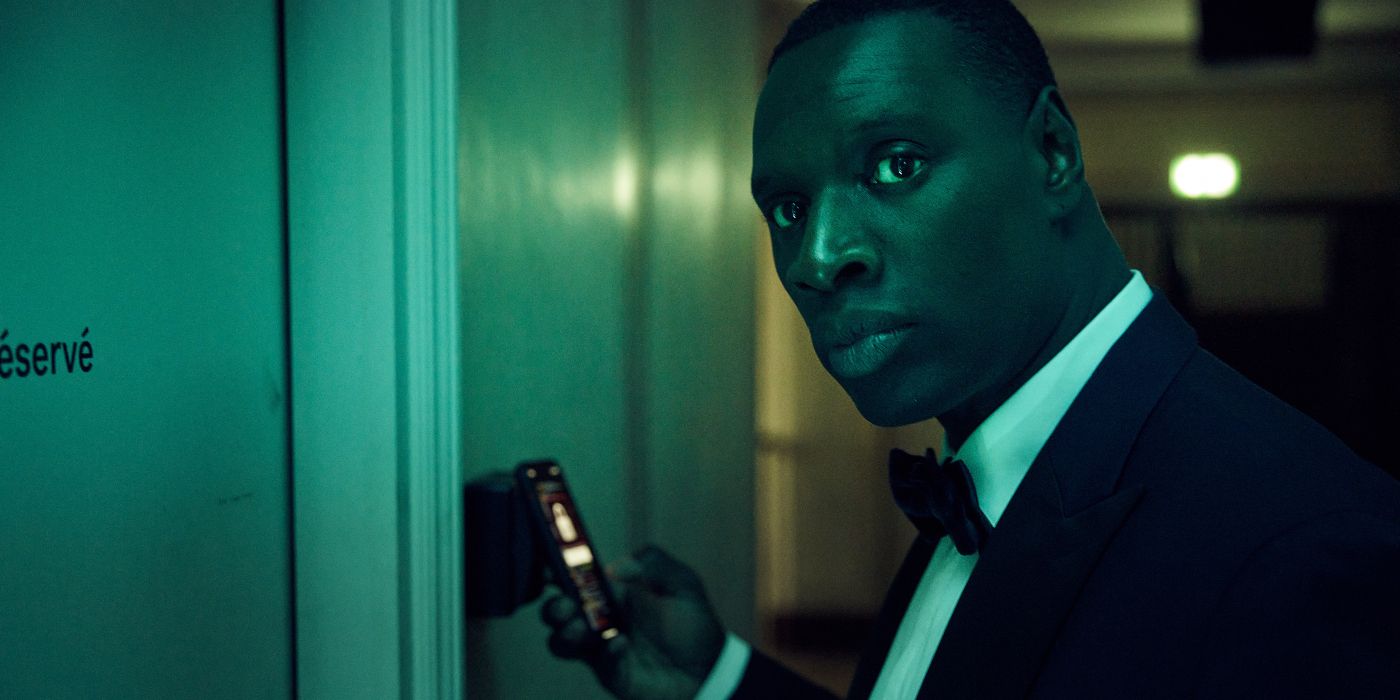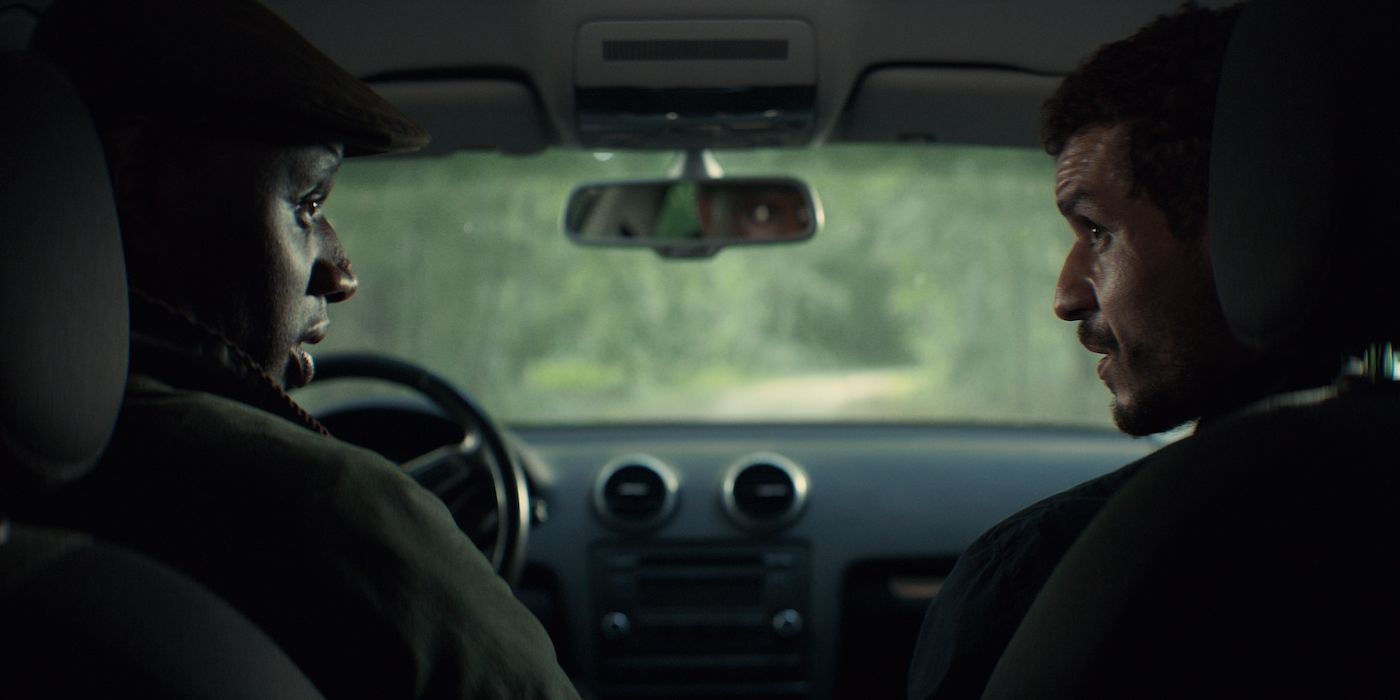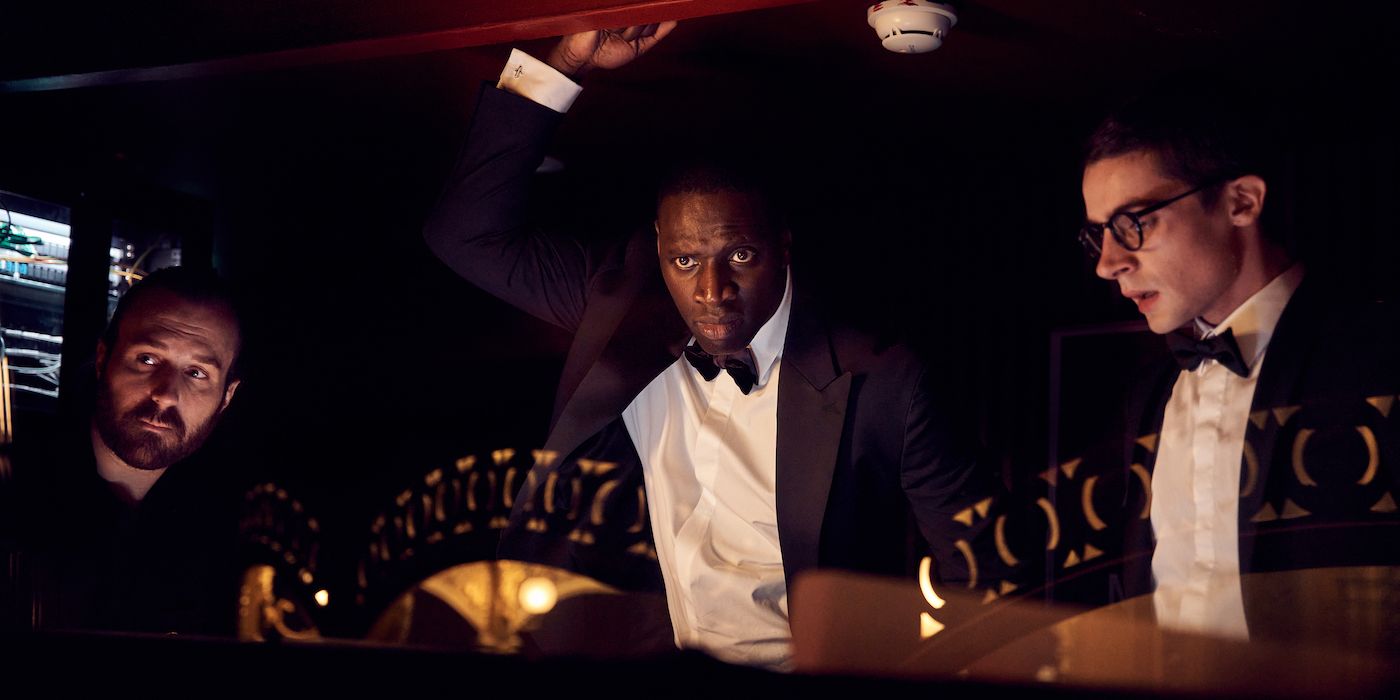I couldn't inhale the first five episodes of Lupin, the French-language mystery-heist-thriller series, fast enough. Starring the endlessly charming, complicated, and fierce Omar Sy as a gentleman thief inspired by Maurice Leblanc's classic literary character Arsène Lupin, the front half of Netflix's roller-coaster gave me addictive thrills bolstered by uncommonly intentional filmmaking and emotional resonance at every turn. I couldn't wait for the next five episodes, billed as "Part 2," fast enough.
Funnily enough, Lupin Part 2 couldn't care less about speed or pace. It's more content to slow things down, to double and quadruple back upon itself, to examine exactly why what's happening is happening. It's a batch of episodes designed to get us to an explosive meeting of forces, and that eventual collision is quite spectacular. But the journey along the way can feel, at times, frustratingly laborious, over-intellectualized in its timeline-hopping, and just plain "different" from the first batch of episodes. Then again, this feels like a purposeful choice from creators George Kay and François Uzan, a choice interrupted by the "Part 1" and "Part 2" of it all, a choice that's meant to be reckoned with as part of the initial creative statement. I couldn't help but feel a little like the mark on the opposite end of one of Assane Diop's (Sy) capers — confused but admittedly delighted, understanding exactly "how" he tricked me but still questioning the "why."
To really "get into" the plot of Lupin Part 2 is to inherently ruin its many machinations and twists, but I will give you this: We open exactly where we left off, with Assane's son Raoul (Etan Simon) getting snatched from the beach by a vicious hunter Leonard (Adama Niane), and police detective Youssef (Soufiane Guerrab) arriving moments later to, seemingly, mark Assane as the "Lupin" they've been looking for. Seconds later, we learn this is not exactly the case — at least on the surface — and the episodes sprint toward all kinds of schemes, double-crosses, and chases. Assane and Pellegrini (Hervé Pierre) remain our kings at opposite corners, but various chess pieces on this board, including Assane's ex Claire (Ludivine Sagnier), police lieutenant Sofia (Shirine Boutella), and Pellegrini's daughter Juliette (Clotilde Hesme), all make their various gambits. Stakes are reversed, allegiances are made and then betrayed, and climactic moments turn everything on their head for the confirmed Part 3.
You know that heist narrative trope where, after a caper is pulled off, we move backward in time and see what actually happened? Lupin Part 2 hits this trope over and over again, constantly rewinding at different lengths of time (sometimes 24 hours ago, sometimes three weeks ago, etc.) to hit an episode's final moments with a sledgehammer of surprise, of revelation, of "the plan behind the plan." The problem with constantly re-shifting and re-defining comes from a resulting lack of forward momentum. Lupin Part 2 feels at some level like it's always running forward at the breathless pace I appreciated about the first part. But if you look close enough, as the end-of-episode twists keep imploring us to do, it starts to feel like a treadmill, a "one step forward, two steps back" storytelling crutch. Some of these self-reflective moments are welcome, especially when dark, earth-shattering moments appear to happen; it makes sense to stop and breathe and think about such moments. But when we keep shifting in and out of self-reflective modes, careening between emotional beats to zippy heist beats, and especially when we keep revealing the zippy actuality behind these ostensibly dark, earth-shattering moments, the whole machine starts to feel like a purposeless exercise in cleverness.
However, I was always appreciative when Part 2 cut back to the mid-'90s, showing young Assane's (Mamadou Haidara) formative years not just as a budding thief, but as a budding human being in a designedly unfair world. I loved Part 1's zeroing in on the harsh emotional realities of Assane's lifestyle, both in the consequences of his actions and what led him to take those actions in the first place. In Part 2, these flashback sequences give us this deep, raw, and empathetic emotional foundations I was desperately craving. To put it another way, the "present tense flashbacks," where we see what actually happened behind a caper, feel satisfying in a superficial "plot" way. But these "past tense flashbacks," where we see why it all happened, feel much, much richer on a character level.
Ultimately, these two impulses — sparkly plot fun and deeper character pathos — fuse together and result in a final episode that easily impresses as one of the best of the still-young series. The filmmaking, which felt a little slapdash and over-edited in the first spate of these episodes, locks into a hypnotic, intentional space of command, echoing some of the best crime set-pieces from genre maestros like Brian De Palma (and echoing Lupin's own first episode, quite cleverly). Suddenly, all of this preceding self-reflective domino-placing (and re-domino-placing) feels worth it to watch this particular tap of the first one cascade into an eruptive feat. A confrontation, lensed in oppressively tight close-ups, scored diegetically by a symphony orchestra, literally took my breath away. Somehow, the moments that occur directly after maintain this emotional and thrill-ride intensity. And the final, new status quo for our chess pieces made me gasp at what it means for their levels of, yes, self-reflection.
Does this explosive sprint of a finale make the tedious training of the previous episodes worth it? I think so. My ambiguity stems, again, from reckoning with this spate of episodes as "Part 2," rather than reckoning with the entire 10 as "Season 1." It reminds me of another contemporary-and-retro, acclaimed-and-entertaining piece of genre storytelling: Kill Bill. That too was split into two parts: a first half that goes and goes and goes, all flawless set-pieces and candy-coated entertainment, and a second half that stops and stops and stops, all emotional re-reckoning and vegetable-infused exploration. Of course these two pieces are going to feel uneven, and of course the first piece is going to feel more "fun" than the second piece. But are they, er, is it just one piece? Methinks that's something we'll have to rewind and reflect on over and over again.
Grade: B
Lupin Part 2 is now streaming on Netflix.



